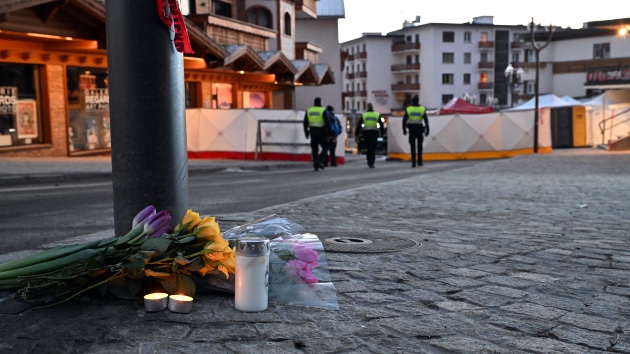Attacks in Lebanon, Iran stoke concern over wider war in Middle East
Written by ABC Audio ALL RIGHTS RESERVED on January 4, 2024

(WASHINGTON) — Very different circumstances surround the assassination of a top Hamas strategist in Lebanon and the mysterious blasts in Iran that occurred this week, but the events have reignited the same lingering fear: that the conflict between Israel and Hamas could still spiral into a regional war — and draw several factions with significant firepower into a devastating fight.
Although Israel has not publicly taken credit for the drone strike that killed Hamas deputy chief Saleh Arouri in Beirut on Tuesday, U.S. officials say the country was indeed behind the attack.
On Thursday, ISIS claimed responsibility for the twin blasts at an event marking the death of Gen. Qassem Soleimani, the former head of Iran’s elite Quds Force who was killed in a U.S. airstrike four years ago. While the U.S. is still gathering its own intelligence, one senior administration official told ABC News on Wednesday that the bombings were consistent with an ISIS attack.
Before ISIS had claimed responsibility for the blasts in Iran, Biden administration officials publicly emphasized there was no evidence to link Israel to the deadly explosions and flatly denied any U.S. involvement.
But Iranian authorities and officials from Hezbollah — a Lebanese militant group that has been intermittently exchanging fire with Israeli forces for months — were quick to blame Israel for both incidents, vowing revenge.
Before a large crowd in Tehran on Wednesday, Iranian President Ebrahim Raisi promised that “the Zionist regime” will “pay the price for this crime.”
And in a public address on Wednesday, Hezbollah leader Hasan Nasrallah declared that the group would retaliate for the killing of Arouri on Lebanese soil, calling the attack a “serious and heinous crime that will not remain without response and punishment.”
David Daoud, a senior fellow at the Foundation for the Defense of Democracies and a former Capitol Hill analyst, told ABC News that he thinks the group is likely to mount a reprisal because the strike happened so close to its own nerve center.
In response to the airstrike in Beirut, the Biden administration called Arouri a “brutal terrorist” who was “centrally responsible” for the Oct. 7 attack on Israel from the neighboring Gaza Strip, which killed more than 1,200 people — primarily civilians — and sparked Israel’s ongoing war to eradicate Hamas that has resulted in the deaths of thousands of Palestinians.
Experts told ABC News that ISIS’ apparent culpability for the Iran blasts and the U.S.’ argument that Israel was justified in targeting Arouri in Lebanon may do little to calm inflamed tensions across the Middle East.
“Things are very tense,” said Dan Byman, a senior fellow with the Transnational Threats Project at the Center for Strategic and International Studies think tank in Washington, D.C., and a part-time senior adviser to the U.S. Department of State on the International Security Advisory Board.
But unlike other regional threats such as the Houthis in Yemen — another Iranian-backed militant group that claims to be targeting cargo ships in Red Sea with ties to Israel, even though many of the vessels that have come under fire have no apparent links to the country –Tehran will carefully weigh any response, according to Byman.
“Iran is unlikely to respond unnecessarily without thinking it through. Iran may escalate directly [or] Iran may escalate through groups like Hezbollah, but it’s not going to do so blindly,” he said.
However, Daoud said Hezbollah is unlikely to significantly ramp up its warfare.
“They have to reset the redlines, but there still seems to be no interest to kind of opening the second front in a manner that would resemble the front of Gaza,” Daoud told ABC News. “They don’t benefit from that.”
State Department spokesperson Matthew Miller said Wednesday that the U.S. held a similar position on the matter.
“We remain incredibly concerned — as we have been from the outset of this conflict — about the risk of the conflict spreading into other fronts,” Miller told reporters. “I wouldn’t say that our concern is any higher today than it has been from the beginning. This has been something that we’ve been intensely focused on.”
While Miller downplayed the impact the killing of a Hamas official in a sovereign nation might have on negotiations over the release of hostages held in Hamas-ruled Gaza and other issues related to the conflict, both Daoud and Byman said the strike would have a chilling effect — but that it may further other Israeli goals.
“In the short term at least, this is going to set back efforts to release hostages. It’s very hard for Hamas to do a ceasefire when it just lost a bunch of very senior leaders,” Byman told ABC News. “But part of Israel’s goal is disruption, and very much what it wants to do is disrupt Hamas’ connections to outside organizations.”
“I think it will impact freedom of movement and visibility of these actors,” Daoud said. “It may also impact the calculus of countries like Turkey or Qatar to host these officials because they may prefer to avoid having problems on their soil.”
Copyright © 2024, ABC Audio. All rights reserved.

 KVSP
KVSP 




